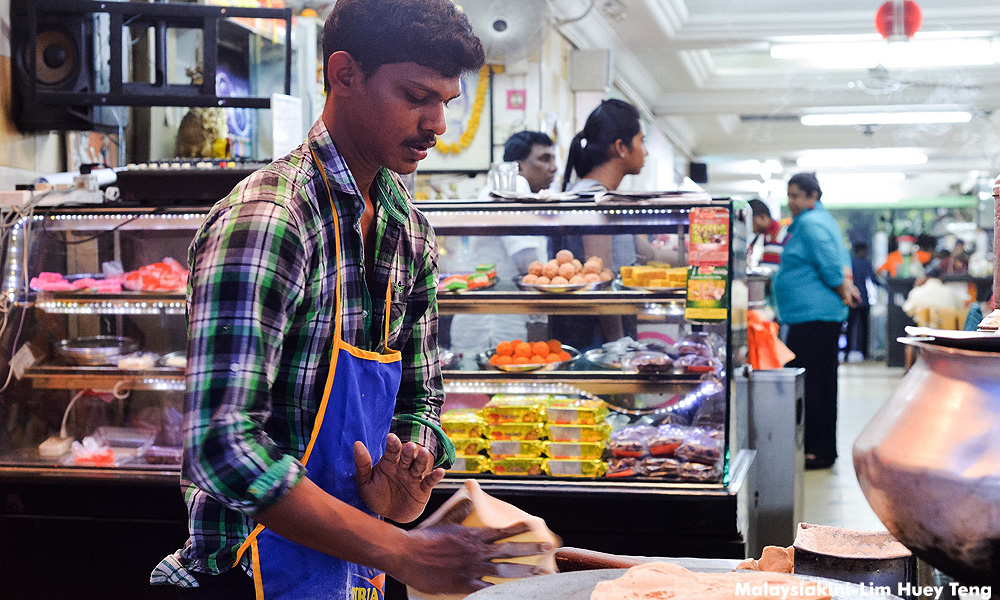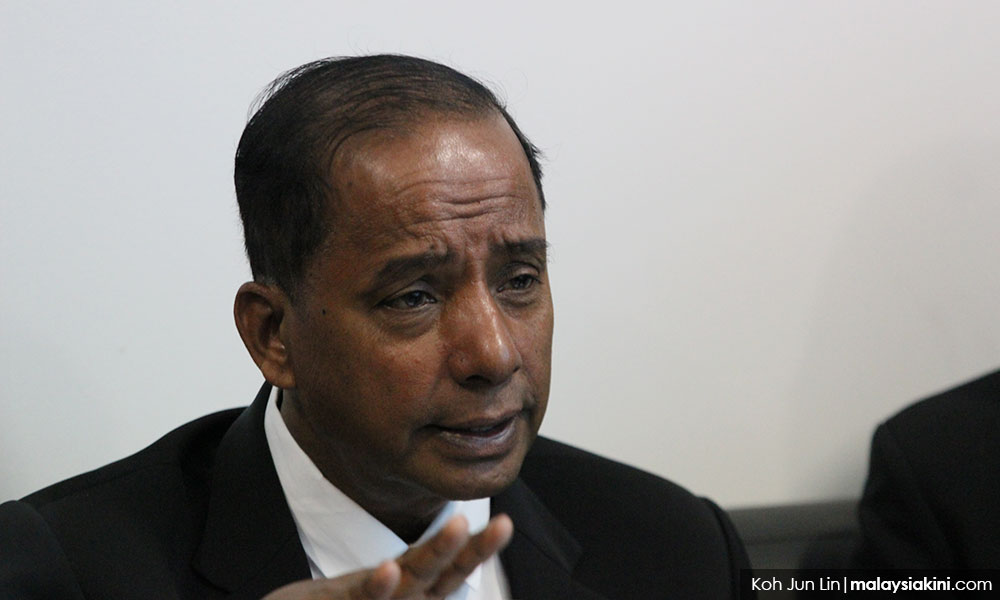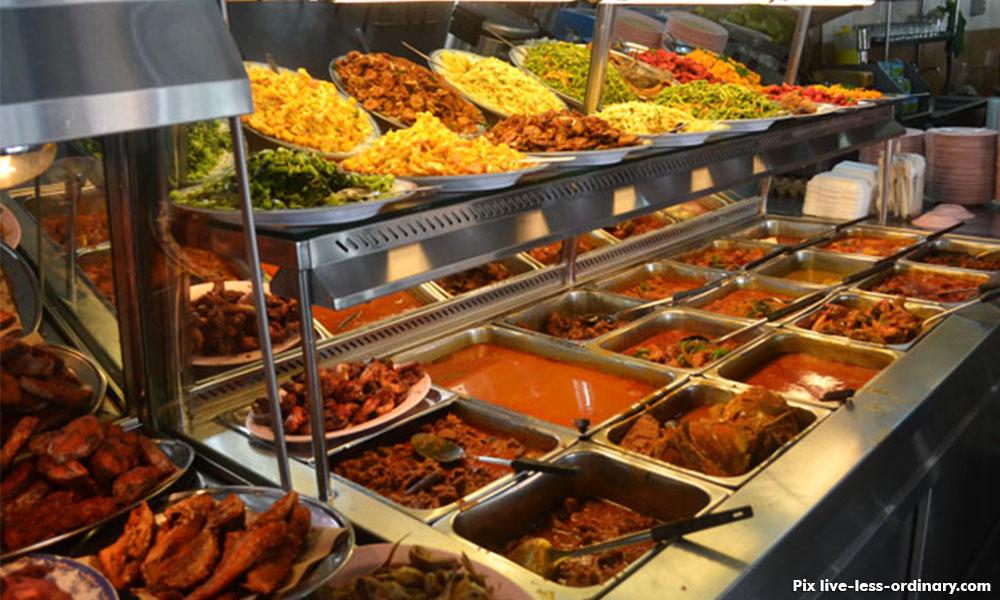
My all-time favourite lepak place is at a stall situated under a big tree, next to an old condo where I used to live, along Old Klang Road in Kuala Lumpur. The stall selling thosai, appam, putu mayum and vadai, along with the usual Malaysian favourites such as roti canai and nasi lemak, is owned by a Malaysian.
However, the cook, the roti maker and the man in charge of the drinks – apart from the waiters – are all Indian nationals.
From years of frequenting the stall, I have learned that some of the Indian nationals working there, including the cook, are migrant workers who were scammed by their agents of job opportunities in Malaysia.
Having spent a fortune to travel here from their home country, they had no means of returning home, hence juggled a few jobs before ending up at the stall.
Quite frankly, I have never had any qualms with the cleanliness or quality of food for all the years I’ve dined at the stall. I personally have visited their open kitchen where I have witnessed the workers cooking, washing dishes and disposing trash.
Not only were they running the kitchen as if it was a kitchen in their own home, the dishes too were cooked with much love, as if they were cooking for their family. No surprise then that every time my friends and I dine at the stall, we feel very much at home.
I wish I could say the same about all the stalls and restaurants I go to.
I remember visiting a restaurant near my parent’s house after moving to Penang early last year. The restaurant was run by an all-Malaysian team - including the cooks, cleaners and waiters.
Despite being locals, the food lacked local flavour, instead it was loaded with MSG. In terms of cleanliness, let me just say that my insides scream for sympathy every time I end up at the restaurant (not by choice, I assure you).
Why am I telling you all this?

Recently, Human Resource Minister M Kulasegaran announced a ban of foreign cooks in restaurants, saying restaurant owners would only be allowed to recruit locals as cooks in all restaurants from next year.
According to the minister, this is aimed at reducing the dependence of local restaurants on foreign labour as well as to ensure the quality of local food. This follows the footsteps of Penang state government who banned foreign cooks in 2014 to protect the national food heritage.
After severe backlash, Kulasegaran then said that the reported ruling was just a proposal, and that further discussions would be held with stakeholders.
Regardless, the news came as a shock to many food operators, from street hawkers to restaurateurs, mainly of their ability to abide by the new rulings within the given timeframe and of the labour shortage of locals willing to work in kitchens.
At the same time, I am sure the news has also caused great concerns among migrant workers as well.
As a great lover of Malaysian food, I must say I am greatly disappointed with the proposal by the minister, which I don’t think is the smartest of moves.
Because good food comes from good cooks, regardless of the country they come from. And to ban a cook just because they are of a different nationality is discriminatory.
Being a foreign worker doesn’t necessarily mean they should be associated with poor hygiene and poor work quality. Have you not seen any locals cooking in a kitchen infested with rats, cockroaches, flies and stray cats?
Likewise, have you not tasted the best tandoori and naan cooked by foreigners?
If we open up our mind, we’d realise there are foreign cooks who are deprived of working arrangements as compared to their local counterparts, yet still perform their duties brilliantly.

Similarly, there are local cooks who enjoy the benefit of good working arrangements, yet still struggle to perform their duties as expected.
In other words, being a foreign cook does not mean they are any inferior to locals. Yes, they may dress and look a little different – but that does not make us any better.
Strictly speaking, if our government’s intention is to give more job opportunities to locals, why not incentivise restaurants who hire 100 percent local with certain privileges?
And if our government’s intention is to safeguard the quality of food produced, why not tighten the law regarding cleanliness for all eateries (with foreign cooks as well as local cooks)?
Quite frankly, there are many issues in our food industry that need to be looked into. But to shift the blame to the migrant workers, pretending everything is going to be alright by recruiting locals, is just not right. And for a minister to make such presumption, I must say, is very childish.
This is exactly the kind of idiocy that we have seen during BN’s rule. Sad to see the new Malaysia being not so new after all.
FA ABDUL is a passionate storyteller, a growing media trainer, an aspiring playwright, a regular director, a struggling producer, a self-acclaimed photographer, an expert Facebooker, a lazy blogger, a part-time queen and a full-time vainpot. -Mkini


No comments:
Post a Comment
Note: Only a member of this blog may post a comment.